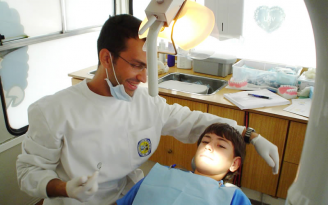
The creation of the law
By the Editorial Staff
Monday | August 04, 2014 | 3:05 PM | Last update: September 22, 2016, 4:07 PM (Brasilia time)
GOOD WILL magazine talked to two members of Congress who played a key role in the development of the bill that resulted in the Maria da Penha Law: Senator Lúcia Vânia and Representative Jandira Feghali.

Having been the reporting member of Congress for the law in the Commission of Constitution and Justice (CCJ), the senator recalls: “What characterizes the process of the bill in the House of Representatives and in the Senate is that we took into consideration the suggestions of men and women interested in the dignity of people and in gender issues.” She believes that it was the participation of members of Congress and of outstanding members of society that provided Brazil with a unique legal order. “We gave the country a law that is considered by the United Nations as one of the three most important ones in the world to protect women, according to the report Progress of the World’s Women 2011-2012: In Pursuit of Justice.”
Representative Jandira Feghali, reporter of the Maria da Penha Law in the House of Representatives, explained that everything started with the Interministerial Work Group created by Decree No 5.030 of March 31, 2004, in which several bodies of the Executive branch of the government were also represented. “The preliminary draft of the bill prepared by the group was submitted to a consortium of feminist non-governmental organizations. (…) We held public hearings and, along with civil society, we built the text based on all the arguments, ideas, and suggestions that had been heard.”

She remembers the resistance and pressures that had to be faced at the time: “When I became the reporter for this, I decided to remove from under the special criminal courts the cases of domestic violence. It was unthinkable to treat this kind of crime as having a minor offensive potential. Pecuniary penalties were common, such as obliging the aggressor to pay for food baskets.”
Jandira Feghali also commented on the effort of civil society organizations in favor of the empowerment of women, in particular on the work of the LBV. “It is acknowledged that the Organization has contributed in the struggle to establish a protection network for women. Preventive actions are always the greatest trump in fighting this type of violence. The pursuit of a peaceful society is extremely important, and all direct actions taken to achieve this must be treated with reverence.”
In the same way Senator Lúcia Vânia also added: “I congratulate the LBV on its work. (…) We, as citizens, as representatives of the public authorities and of organizations such as the LBV, cannot close our eyes and choose omission.”
Despite the quality of the legal text, there are elements that need to be incorporated into it in order to make the application of the Maria da Penha Law more agile. Therefore, the congresswoman herself submitted the Senate Bill (PLS, in Portuguese) No 37/2010 to amend article 10 of the Code of Criminal Procedure of Brazil and article 12 of Law 11.340 to determine the maximum time span for conclusion and submission of police investigations in the cases of domestic and family violence. “At present, the period for the police to complete an investigation and submit it to the court is 10 days (...). What I intend is to get Justice to be faster, so as to protect women better,” the senator adds.
+ Maria da Penha - an example of courage and perseverance
+ LBV: education as a means of confronting discrimination and violence against women


